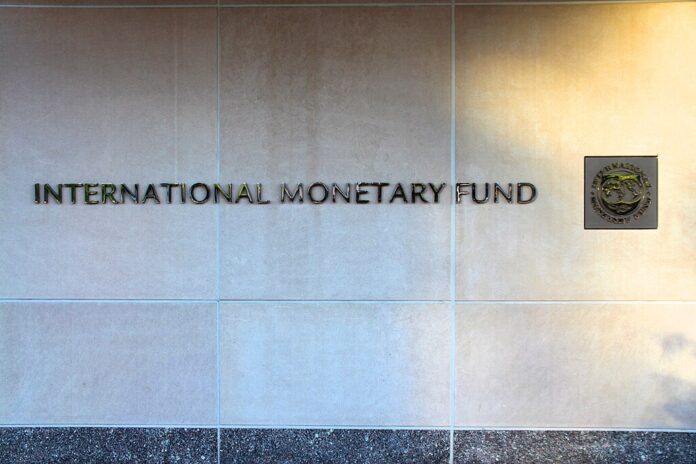The Pakistani government falls short of securing $9 billion in debt rollovers, receiving only $426 million, causing a delay in the IMF’s $7 billion bailout package
Pakistan’s financial situation took a significant hit as the government failed to secure $9 billion in debt rollovers last month, according to an official report released on Tuesday. The Ministry of Economic Affairs revealed that the country received only $426 million from international lenders in July, falling drastically short of its target.
The report highlights that the government was unable to secure loans from foreign commercial banks or bilateral creditors, which are crucial for stabilizing the nation’s finances. Key rollovers from China, Saudi Arabia, and the United Arab Emirates (UAE), along with new loans from foreign commercial banks, are essential for the International Monetary Fund’s (IMF) approval of a $7 billion bailout package.
Embed from Getty ImagesThe IMF had planned to approve the $7 billion package on August 30 but has postponed this decision due to Pakistan’s failure to secure the necessary debt rollovers. The government’s plan included a $5 billion rollover from Saudi Arabia, a $4 billion rollover from China, and a $3 billion deposit from the UAE, which is reflected on the central bank’s balance sheet. None of these disbursements occurred in July.
The IMF’s Extended Fund Facility (EFF) program requires Pakistan to stay current on its external and domestic debt repayments. The failure to secure the $12 billion cash deposit rollover and a $4 billion commercial loan impacts the IMF’s debt sustainability plans. Despite this, neither the IMF nor the Pakistani government has yet addressed the need for debt restructuring.
There is some hope for the government if it can finalize the sale of a 15% stake in the Reko-Diq mining project to Saudi Arabia by early September. This could potentially lead to Saudi Arabia expediting Pakistan’s $5 billion rollover request and approving an additional $1.2 billion oil financing facility. However, the current fiscal year’s borrowing plan does not include this $1.2 billion facility, although Finance Minister Muhammad Aurangzeb has already requested it.
The delay in the IMF package approval adds to the government’s challenges. The federal government, having imposed a record Rs1.8 trillion in new taxes, faces an anticipated shortfall in Federal Board of Revenue (FBR) tax collections. With a Rs898 billion tax collection target for the month, the FBR has only managed to collect Rs575 billion so far, leaving a shortfall of Rs323 billion to be covered in just four days.
Internal assessments suggest a potential shortfall of around Rs80 billion, prompting the FBR to seek advances from commercial banks. Prime Minister Shehbaz Sharif has appointed Rashid Langrial as the new FBR chairman, who now faces the crucial task of meeting the tax collection target.
The report also noted that the World Bank provided a $132.4 million loan last month, with allocations for various projects including flood relief and agriculture. The Asian Development Bank (ADB) disbursed $52 million, while China contributed $97 million for a satellite project. Additionally, $128 million came from the Naya Pakistan Certificates.
However, Pakistan did not receive any disbursements against the projected $3.8 billion from foreign commercial banks and plans to borrow $1 billion through sovereign bonds this fiscal year. This includes $300 million through Chinese Panda bonds and $700 million through Green bonds.
Analysis:
Political:
The failure to secure debt rollovers and the subsequent delay in the IMF package approval reflect significant political challenges for Pakistan. The government’s inability to manage its debt obligations effectively impacts its international standing and relations with lenders. The delay in securing financial support from key international partners underscores the need for political stability and effective financial management to regain trust and support.
Social:
The financial crisis and delays in international aid have direct social implications for Pakistan. The potential shortfall in tax revenue and the need for new fiscal measures could lead to increased public dissatisfaction. The strain on government resources may also affect social services and public welfare programs, further impacting the general population’s quality of life.
Racial:
While the immediate financial issues do not directly relate to racial matters, the broader economic impact can disproportionately affect marginalized communities within Pakistan. Economic instability often exacerbates existing social inequalities, including those based on race or ethnicity, by limiting access to resources and opportunities for disadvantaged groups.
Gender:
The economic challenges faced by Pakistan can also have gender-specific effects. Women, who are often more vulnerable in economic downturns, may experience greater impacts due to reduced access to employment opportunities and social services. The financial instability can affect gender equality efforts and women’s economic participation.
Economic:
Economically, Pakistan’s struggle with debt rollovers and delayed IMF support highlights severe financial management issues. The inability to secure necessary funding affects the country’s creditworthiness and economic stability. The government’s efforts to address tax collection shortfalls and the need for additional borrowing further strain the country’s financial resources. This situation underscores the broader economic challenges Pakistan faces, including managing debt sustainability and maintaining economic growth amid financial pressures.
